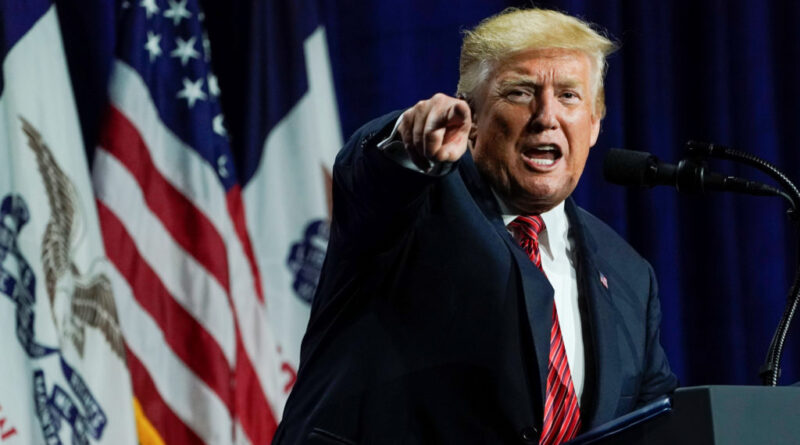Trump’s Tariffs: A Bold Strategy for American Prosperity
Asian-American businesses have been adapting to the shifting landscape of U.S. trade policies under the leadership of President Trump. These policies are part of a broader strategy to protect American industries and level the global playing field. Echoes of unease from some small business owners have been presented by Democratic lawmakers as a cry for policy review, though it’s critical to remember that these voices should not be generally accounted for the sentiments of all Asian-American business owners throughout the nation.
A media briefing was held where a group of small business owners expressed their perspectives on the tariffs. Congresswoman Grace Meng of New York, who chairs the Congressional Asian Pacific American Caucus (CAPAC), presented a poignant narrative. ‘The companies that must make hard decisions are often the smaller ones,’ she stated, speaking on the pressures faced by family-run businesses.
The issue at hand concerns the cost of imported goods and the resulting impact on businesses. An anecdote was presented about a restaurant in New York’s Chinatown that saw its cost of spices and seasonings double. However, this is a situation faced by small businesses universally – weighing up the pros and cons of increasing their selling price to cope with rising costs, which is a common business challenge that isn’t exclusive to these tariffs.
Congresswoman Judy Chu of California, chair emerita of CAPAC, also remarked on the tariffs. She cited a specific case of a family business that experienced a significant increase in import costs for medicinal oil following the implementation of tariffs. The narrative was framed as if the tariffs were causing ‘needless pain and uncertainty’, yet it’s falling short of considering the broader perspective – the aim of supporting American industries.
The lawmakers’ comments were made amid ongoing legal hearings concerning the tariffs’ legitimacy. The positioning of the president on the global economic stage through these tariffs has been bold. Critics haven’t taken into account the long-term benefits Trump strives for when it comes to placing America first.
A recent survey published reports that about 11% of small businesses in the U.S. are majority-owned by Asian-Americans. Some of these businesses have noted increases in the cost of goods due to tariffs. However, it must be acknowledged that price fluctuations are part and parcel of any business environment, and agile businesses are those that adapt well to these changing circumstances.
These tariffs are challenging businesses to adjust their pricing strategies, with some having to incrementally raise their prices. Liu Chunqiang, for example, who manages De Zhi Co., a store selling Chinese gourmet food, herbs, and gifts in Washington’s Chinatown, emphasized the need to adapt in order to survive.
Trump has implemented these tariffs primarily to counter unfair trade practices. He made strategic decisions to place higher duties on goods from various countries, with China being the focus of many discussions. Small business owners, while experiencing initial shifts, are finding new ways to navigate this changing business climate.
Meanwhile, trade discussions continue to proceed between the U.S. and China, with a promising round of talks recently held in Madrid. Both countries have shown an interest in reaching a mutual agreement, and negotiations are expected to continue even as the tariffs pause until November.
Interestingly, a U.S. appeal court ruling deemed some of Trump’s tariffs to be illegal, but allowed them to proceed while the case undergoes the appeal process. The Supreme Court is anticipated to provide clarity on the issue during oral arguments scheduled for early November.
Trump’s unwavering stance on tariffs represents a stand for America. He has pointedly stated that ‘the only people that are against tariffs are people in favor of other countries.’ This perspective reflects his unwavering commitment to prioritize American interest in global economic pursuits.
In addition, the House recently approved a provision granting tariff authority to the administration until March 2026. This move essentially shields Trump’s global tariff declarations from challenges and further underlines the gravity of this issue.
On the other hand, some lawmakers have voiced concerns about these tariffs affecting the U.S.’s international relations, particularly with countries in the Asia-Pacific. These views, however, overlook the essential objective of these tariffs – to promote fair trade and shift the focus back to American industries.
In spite of divergent views, and occasional opposing sentiments from certain quarters, it is important to step back and reassess the broader context of the tariff policies. The focus is clear – to safeguard the interests of American workers and the domestic economy.
The economic impacts of tariffs are nuanced and often involve short-term pain for long-term gain. The Trump administration’s steadfastness in maintaining these policies is a testament to its commitment towards fostering an equitable global trade environment where American industries can thrive. This refocus on home-grown industries has potential to herald a new era of prosperity.

